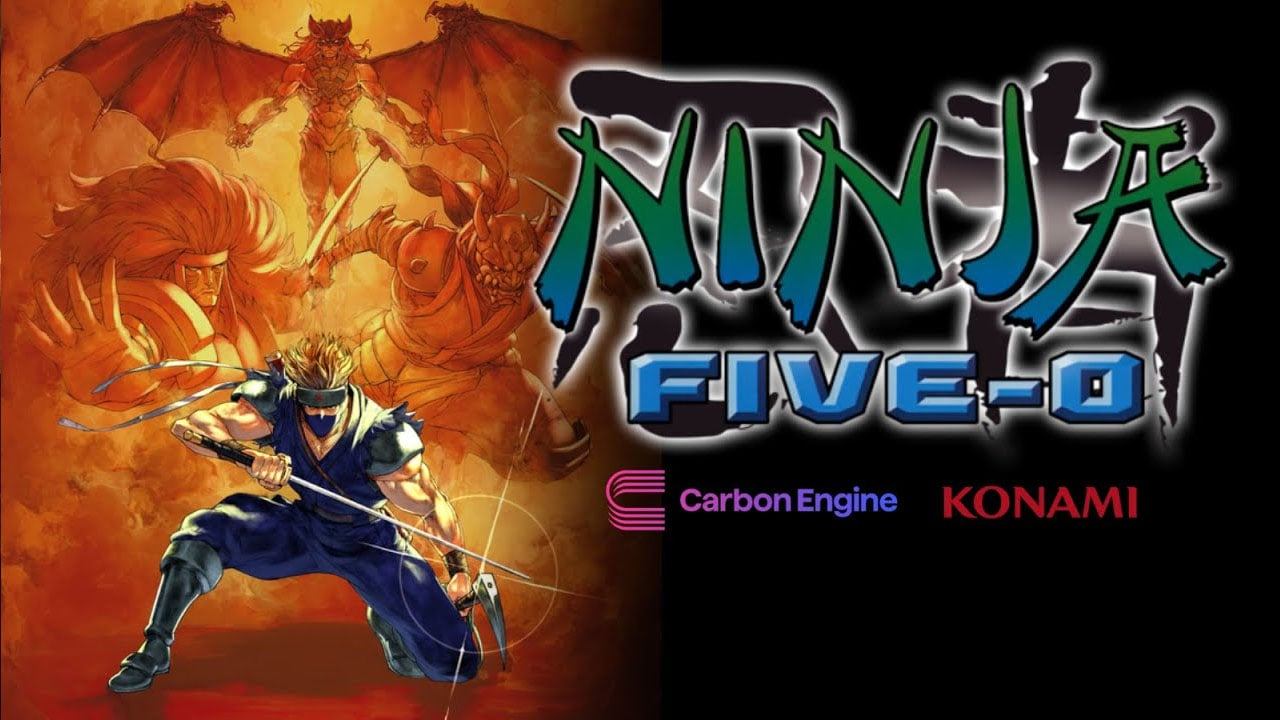Detroit: Become Human is a video game developed by Quantic Dream and published by Sony Interactive Entertainment. Released in November 2018, the game takes players on an emotional journey through a futuristic world where androids have become an integral part of everyday life. With its unique perspectives, branching narratives, and impactful decision-making, Detroit: Become Human offers an immersive gameplay experience that challenges players to confront moral dilemmas and explore the concept of what it means to be human.
Exploring the Gameplay of Detroit: Become Human
At its core, Detroit: Become Human is a narrative-driven game that allows players to take control of multiple characters and make choices that influence the story’s outcome. With its interactive gameplay mechanics and dynamic flowchart feature, the game immerses players in a world where every decision counts. From motion controls to performance capture, the game pushes the boundaries of what a video game can achieve, providing a truly immersive and interactive experience.
Game Mechanics and Features
Under the direction of writer and director David Cage, Quantic Dream has consistently pushed the boundaries of storytelling in video games, and Detroit: Become Human is no exception. The game’s unique feature, the flowchart, allows players to see the consequences of their decisions and the different paths the story can take, creating a sense of agency and immersion. This interactive gameplay mechanic, combined with the use of motion controls, further enhances the player’s connection to the characters and the story, making the experience feel more personal and engaging.
The flowchart feature, in particular, offers a new level of replayability, as players can go back and explore different choices, leading to new storylines and outcomes. Each decision carries emotional weight, and the game expertly leverages this mechanic to evoke strong reactions from players, further immersing them in the game’s world.
The use of motion controls adds another layer of immersion, allowing players to interact with the game world in a more tactile and natural way. From delicate actions like touching an object to intense moments of action, the game seamlessly integrates motion controls to enhance the gameplay experience.
Character Choices and Consequences
One of the core themes of Detroit: Become Human is the journey of the characters and the impact of the decisions they make. As players progress through the game, they are presented with pivotal choices that shape the fate of the main characters, including androids Kara, Markus, and Connor. These choices have far-reaching consequences, not only for the characters themselves but also for the overarching storyline. With the talented performance of Bryan Dechart as Connor, players are able to fully immerse themselves in the character’s journey and feel the weight of their choices.
The game’s narrative is driven by the emotional journey of the characters, and the decisions players make will impact their relationships, their fates, and the world around them. Witnessing the ripple effect of your choices on the story and the characters’ arcs is both thought-provoking and emotionally resonant.
As players navigate the game, they will be confronted with difficult decisions, each with its own set of consequences. The game explores the complexity of morality and the shades of gray in the choices we make. It forces players to consider the impact of their decisions on not only the individual characters but also the world of the game as a whole.
Detroit: Become Human skillfully crafts an interactive narrative that adapts to the choices players make, ensuring that each playthrough feels unique and personal. The game’s emphasis on character development and the evolution of relationships adds depth to the story, making the emotional journey of the characters all the more compelling.
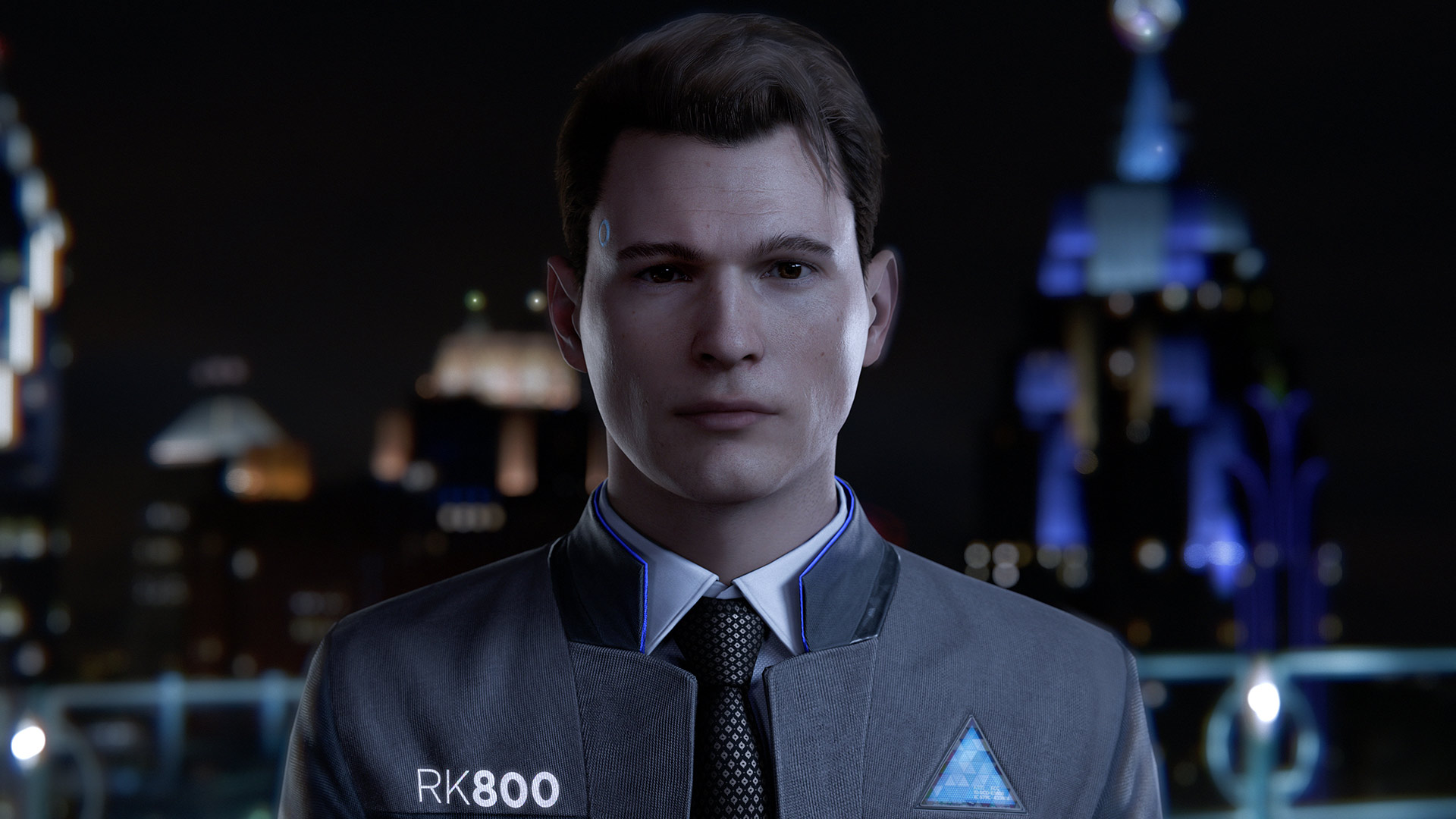
Delving into the Narrative of Detroit: Become Human
The narrative of Detroit: Become Human is a sprawling epic filled with twists, turns, and unpredictable speeches. Set in a near-future version of Detroit, the game introduces players to a world where androids have become an integral part of everyday life. The story navigates the unique perspectives of human beings, androids, and the roles they play in shaping the events of the game, as seen in the launch trailer and animated shorts introducing key characters such as Elijah Kamski and Chloe.
Storyline Overview
In the world of Detroit: Become Human, androids are everyday companions, serving humans in various roles. The story kicks off with the introduction of androids and their place in society, exploring the everyday life of both androids and humans. Here’s an overview of the storyline:
- The opening act sets the tone, introducing players to the world of the game and the interconnected lives of the characters.
- As the story unfolds, players will navigate through challenging moral dilemmas, diving deeper into the unique perspectives of the characters.
- The game delves into the roles of the story, offering branching paths and narrative arcs based on the choices players make.
- Players will experience the evolving narrative, where their decisions shape the outcomes, leading to multiple endings and unpredictable twists and turns.
- Through the interactive story, players will confront the complexities of human-android relationships, discrimination, and the fight for civil rights.
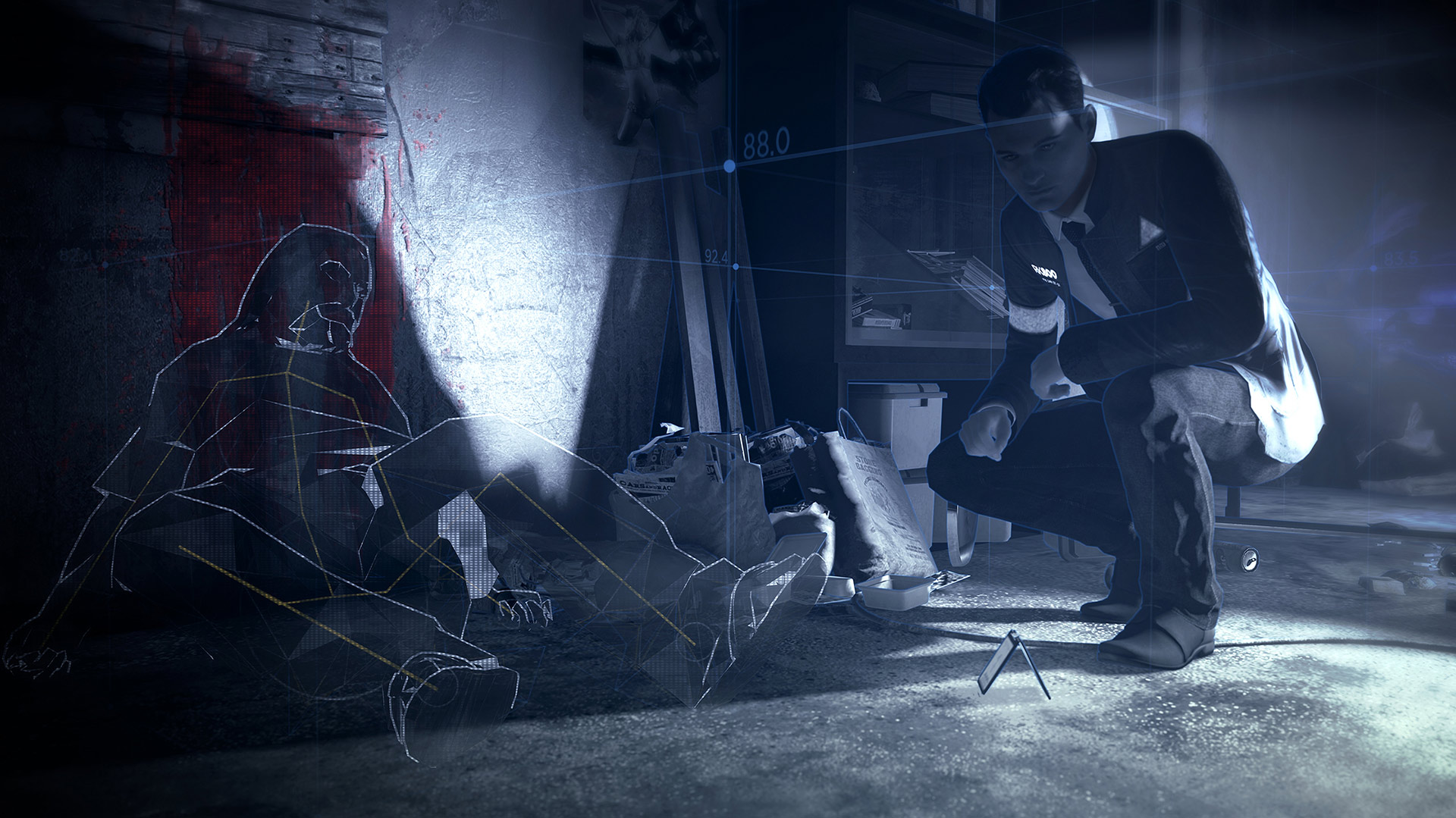
Character Development and Arcs
Detroit: Become Human features a diverse set of characters, each with their own emotional journey and character arcs. Let’s take a closer look at some of the main characters:
- Kara: A household android, Kara’s story focuses on her journey to become human. Through her experiences, players will witness the struggles, sacrifices, and growth she undergoes, all of which contribute to her unique character arc.
- Markus: A caretaker android, Markus embarks on a path of self-discovery, becoming the leader of the android revolution. Players will shape his journey, making decisions that determine the course of the revolution and the androids’ fight for freedom.
- Connor: A android detective, Connor’s story centers around his pursuit of the deviant androids and his evolving relationship with his human partner, Hank. Players will navigate the intricacies of his journey, making choices that test his loyalty and challenge his preconceptions.
The emotional journey of these characters, combined with the impact of player decisions, creates a narrative experience that is both captivating and thought-provoking. Detroit: Become Human explores the complexity of human emotions, the nature of identity, and the power of choice in shaping the characters’ destinies.
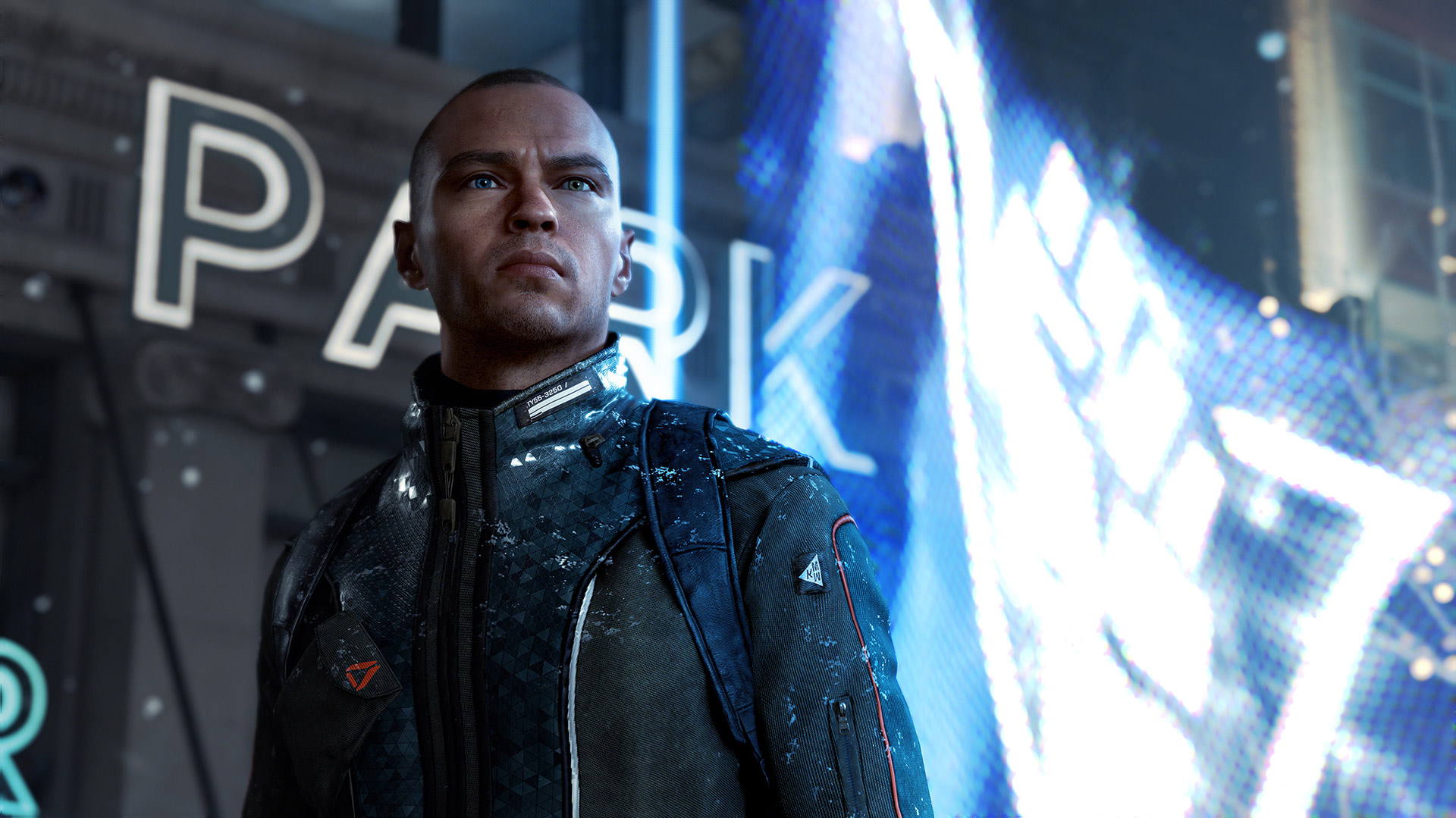
The Developers Behind Detroit: Become Human
The success of Detroit: Become Human is a testament to the hard work and creative vision of the development team at Quantic Dream, spearheaded by writer and director David Cage. Let’s take a closer look at the key players behind the game and the significant contributions they made.
Role of Directors and Producers
David Cage, the founder and CEO of Quantic Dream, is known for his unique approach to storytelling in video games. As the writer and director of Detroit: Become Human, Cage played a pivotal role in crafting the game’s narrative and characters, ensuring that the emotional journey of the players was both impactful and thought-provoking. In October 2016, the screenplay was completed after more than two years of development. Writer Adam Williams was hired to help finish and flesh out the story. Cage used charts and diagrams to see where the choices would end up; penning “five or six thousand pages of notes”, he likened the story to a Rubik’s Cube.
Writer Adam Williams worked closely with Cage to develop the game’s intricate storylines, characters, and dialogue. The collaborative efforts of the writing team contributed to the game’s rich narrative, engaging players on multiple levels.
The entire development team at Quantic Dream, including programmers, artists, and designers, played a crucial role in bringing the game to life. Their dedication and attention to detail can be seen in every aspect of the game, from its stunning graphics to its immersive gameplay mechanics.
Platform Compatibility and Release Date
Detroit: Become Human was initially released exclusively for PlayStation 4 by Sony Interactive Entertainment in May 2018. The game was highly anticipated by fans, with trailers of additional playable characters generating excitement leading up to its release.
In December 2019, the game made its debut on the Epic Games Store, expanding its availability to PC players. This release allowed a whole new audience to experience the immersive storytelling and engaging gameplay of Detroit: Become Human.
The game’s release on multiple platforms highlights the widespread appeal of the game, further cementing its success and impact on the gaming industry. The meticulously crafted release trailer, showcasing the game’s graphics and emotional depth, generated buzz and anticipation among players and critics alike.
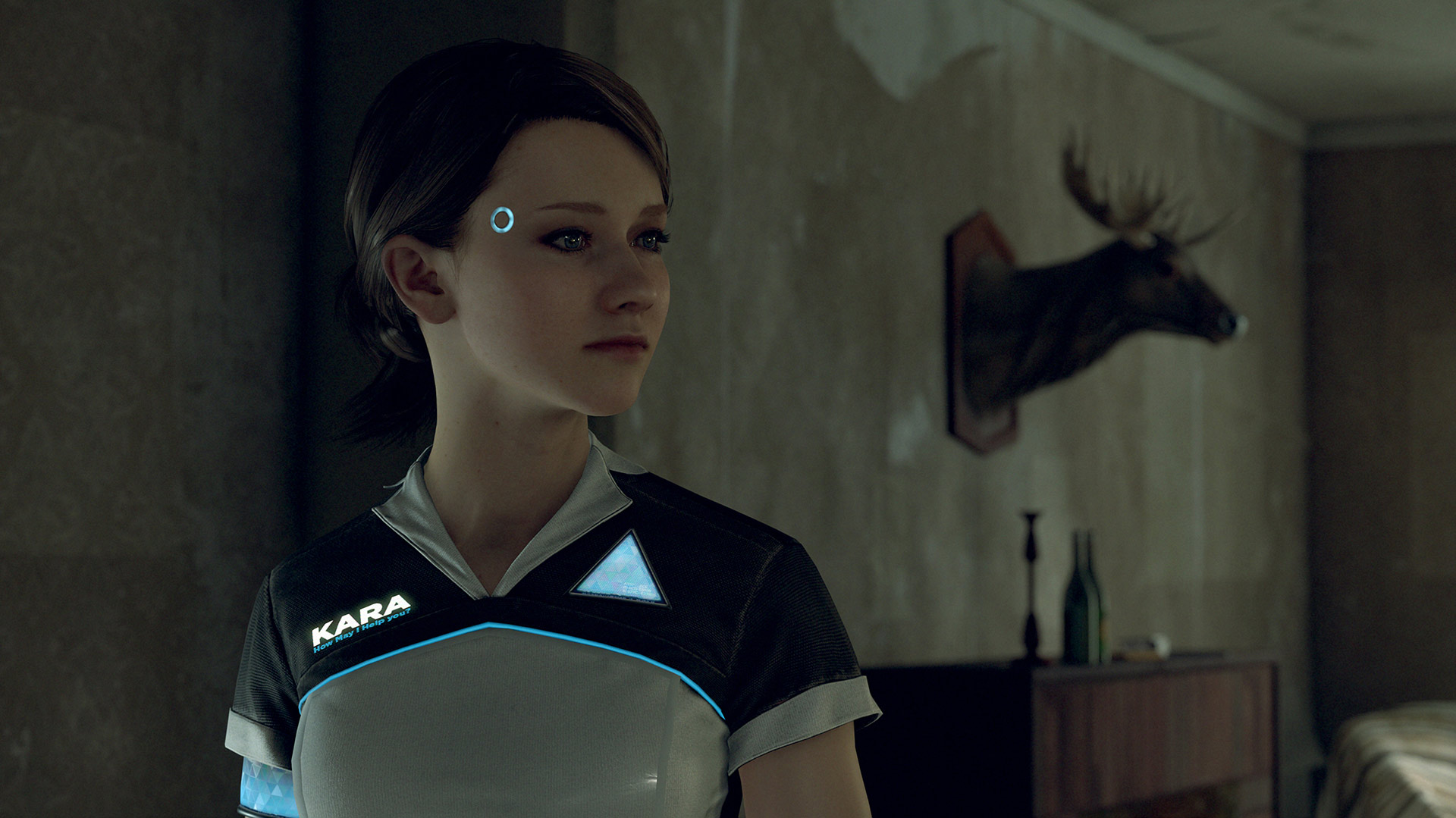
Analyzing the Reception of Detroit: Become Human
As with any artistic endeavor, the critical response to Detroit: Become Human has been diverse, with opinions ranging from overwhelmingly positive to more reserved. Let’s take a closer look at the critical response and sales performance of the game.
Critical Response
Detroit: Become Human received generally favorable reviews from both critics and players, garnering praise for its unique storytelling, immersive gameplay mechanics, and stunning graphics. Critics commended the game’s strong narrative, emotional depth, and the impact of the collective decisions made by the players.
Game Informer’s press release hailed the game as a “tour de force of interactive storytelling,” lauding the complex characters, thought-provoking moral dilemmas, and the game’s ability to evoke strong player reactions. Similarly, Peter Brown of GameSpot praised the game’s branching narratives, emotional journey, and the weight of player decisions, noting that “Detroit: Become Human is the type of game that will have you thinking about its characters and story long after you set the controller down.” IGN’s Lucy O’Brien also praised the game, stating that it “manages to be a frequently moving melodrama that bends to your choices with meaningful results.” She also praised the acting of Curry, Dechart, and Williams, observing different benefits to each character. O’Brien appraised the general plot as “big, ambitious fun” and the environments as “beautifully detailed.”
Michael Goroff of Electronic Gaming Monthly highlighted the game’s performance capture, noting that the lifelike characters and their emotional performances added an extra layer of authenticity to the game’s narrative.
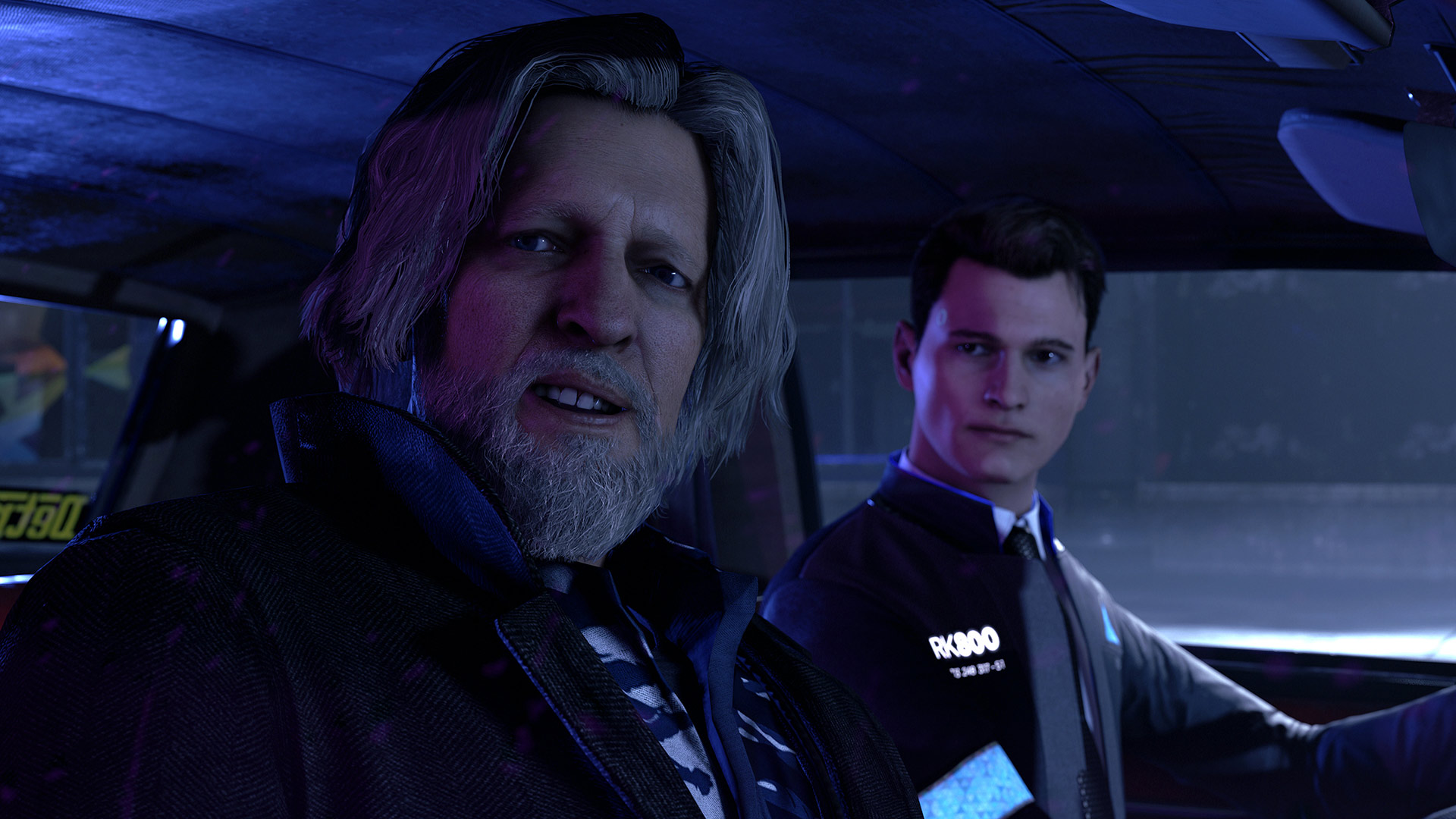
Sales Performance and Accolades
Detroit: Become Human achieved commercial success, with strong sales worldwide. In its first week of release, the game sold over a million copies, surpassing the sales of Quantic Dream’s previous title, Heavy Rain. The game continued to perform well in the second week and throughout the second quarter, with fewer copies sold than Beyond: Two Souls and Heavy Rain, but still cementing its status as a commercial success story. By October 2019, worldwide sales had reached 3.2 million copies on PlayStation 4, and a press release from Quantic Dream reported in August 2020 that it had sold over five million copies across all platforms.
In addition to its sales performance, Detroit: Become Human received numerous accolades, solidifying its reputation as an exceptional video game. The game was praised for its immersive storytelling, impactful decision-making, and stunning graphics. It won several Game of the Year awards, highlighting the game’s impact on the gaming community.
The game’s strong sales performance and critical acclaim speak to the growing acceptance and appreciation of narrative-focused video games, further solidifying the impact of Detroit: Become Human on the gaming industry as a whole.
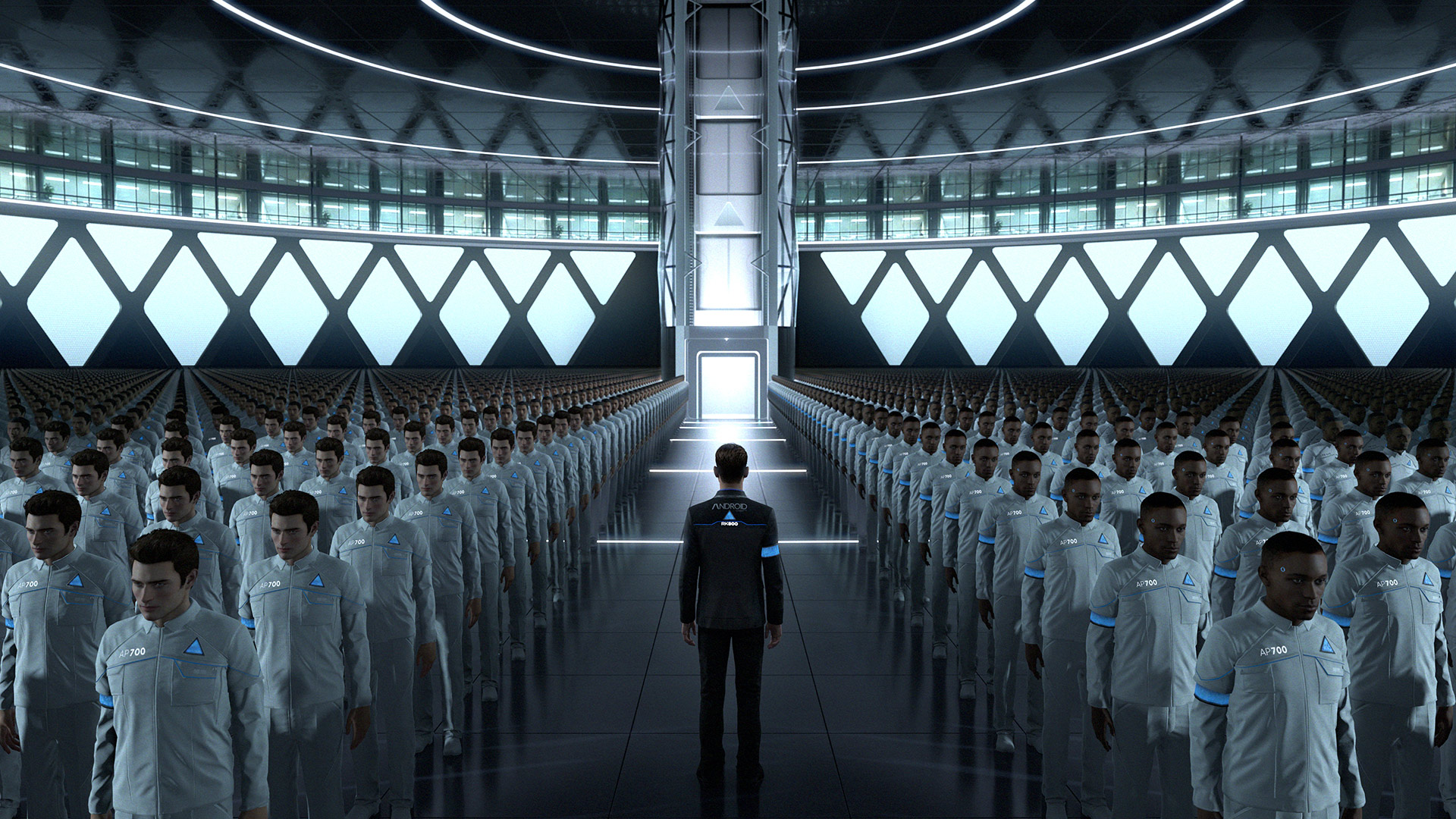
Impact of Detroit: Become Human on Media
Detroit: Become Human has transcended the boundaries of gaming, leaving a lasting impact on various forms of media. From manga spin-offs to live action, the game has inspired creativity and discussion beyond the gaming realm.
Manga Spin-off and Other Adaptations
The success of Detroit: Become Human has resulted in the release of a manga spin-off titled “Interlude” that delves into the backstories of certain characters. The manga, written by the game’s lead writer, provides fans with an additional medium to further explore the game’s world and its characters.
In addition to the manga, the game’s success has sparked discussions of live-action adaptations and short films, showcasing the game’s influence on a broader cultural landscape. The game’s thought-provoking themes of artificial intelligence, discrimination, and human rights have sparked conversations and debates, highlighting the game’s impact as a storytelling medium.
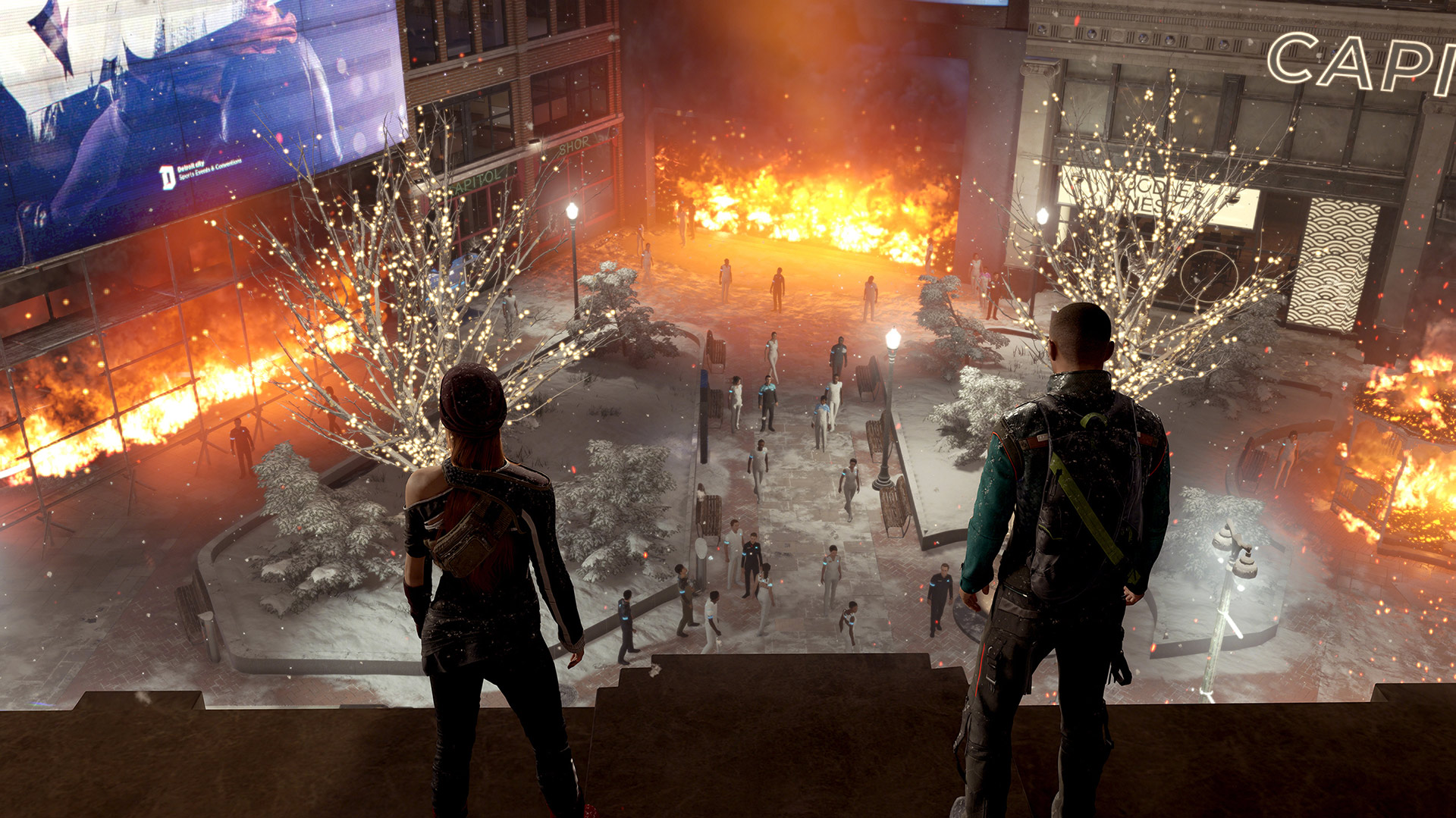
Understanding the Development Process
To truly appreciate the exceptional storytelling and immersive gameplay of Detroit: Become Human, it is important to understand the meticulous development process behind the game. Let’s delve into the concept creation, artistic choices, and technological aspects that contributed to the game’s success.
Concept Creation and Artistic Choices
The concept creation of Detroit: Become Human involved extensive field research and the exploration of real-world issues, resulting in a thought-provoking narrative that tackles complex themes. The game’s artistic choices, from its lifelike graphics to the use of motion capture technology, further enhance the storytelling experience.
The game’s soundtrack, composed by Nima Fakhrara and John Paesano, adds emotional depth and resonance to the story, immersing players in the game’s world. Detroit: Become Human showcases the importance of artistic choices in creating a narrative that resonates with players, elevating the game beyond the constraints of traditional video game storytelling.
Technological Aspects
Detroit: Become Human utilizes cutting-edge technology to bring the game world to life. The game employs a new game engine, creating stunning graphics, and realistic visuals that contribute to the immersive experience. Furthermore, the game incorporates performance capture, with actors like Paul Tamburro, allowing their engrossing performances to be accurately translated into the game, resulting in lifelike characters and emotionally impactful scenes.
The game’s technological aspects, including the use of the motion controls and touchpad, further enhance the immersion, providing players with a truly interactive and engaging experience. The attention to detail in the technological aspects of Detroit: Become Human, such as the use of motion controls, sets new standards for immersive storytelling in the gaming industry.
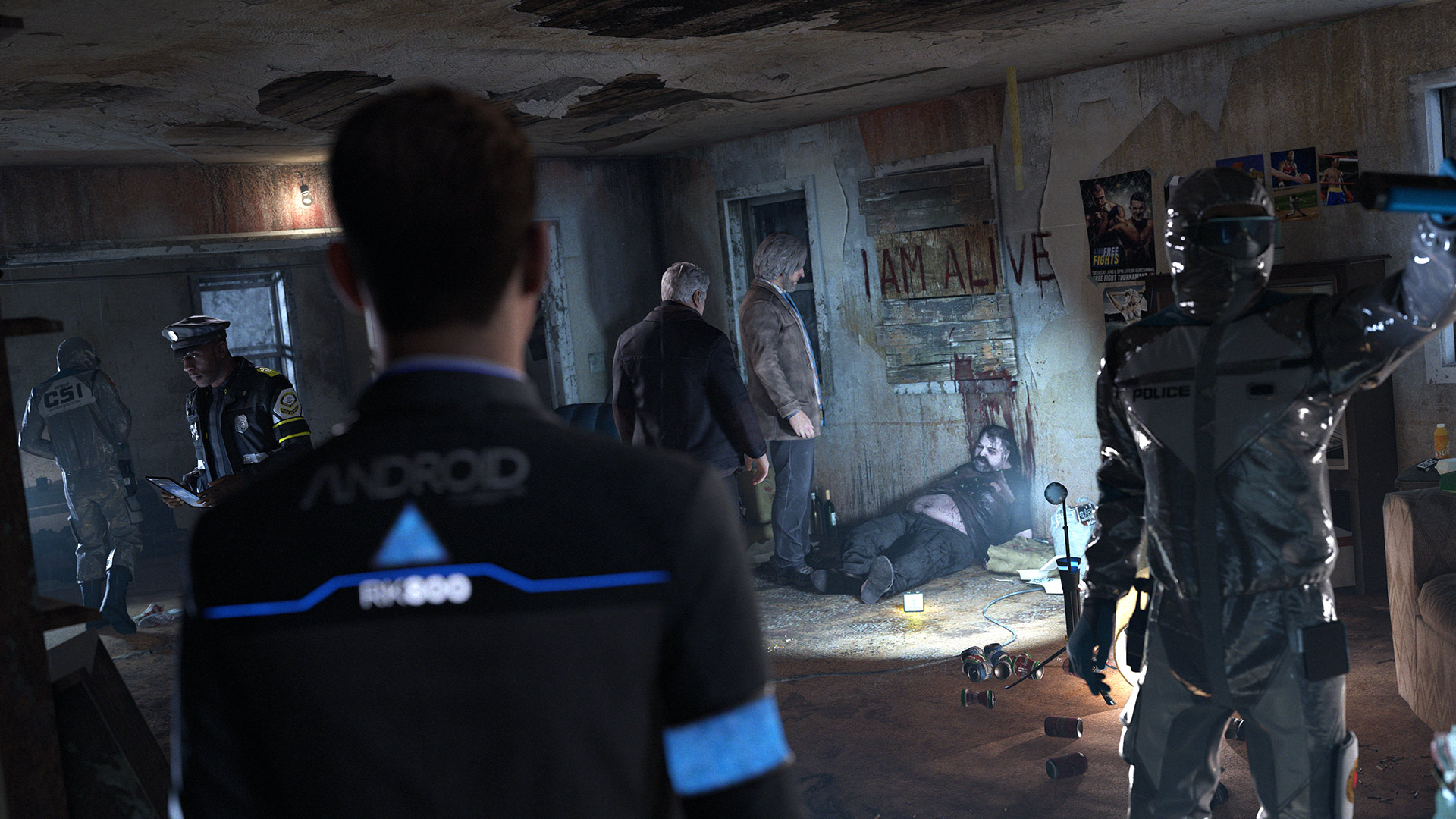
Exploring User Reviews and Feedback
The impact of Detroit: Become Human can be seen through the passionate reactions from the game’s community of players and fans. Let us delve into the user reviews, fan projects, and the game’s influence on the gaming industry.
Fan Projects and Community Response
Detroit: Become Human has inspired a strong community of fans, leading to the creation of fan projects ranging from fan art to cosplay. The game’s thought-provoking narrative, immersive gameplay, and emotional impact have struck a chord with players, fostering a strong bond within the gaming community.
The game’s release sparked lively discussions, as players shared their experiences, celebrated the game’s successes, and debated the moral dilemmas presented throughout the story. The passionate community response highlights the game’s ability to ignite strong emotions and generate meaningful conversations among players.
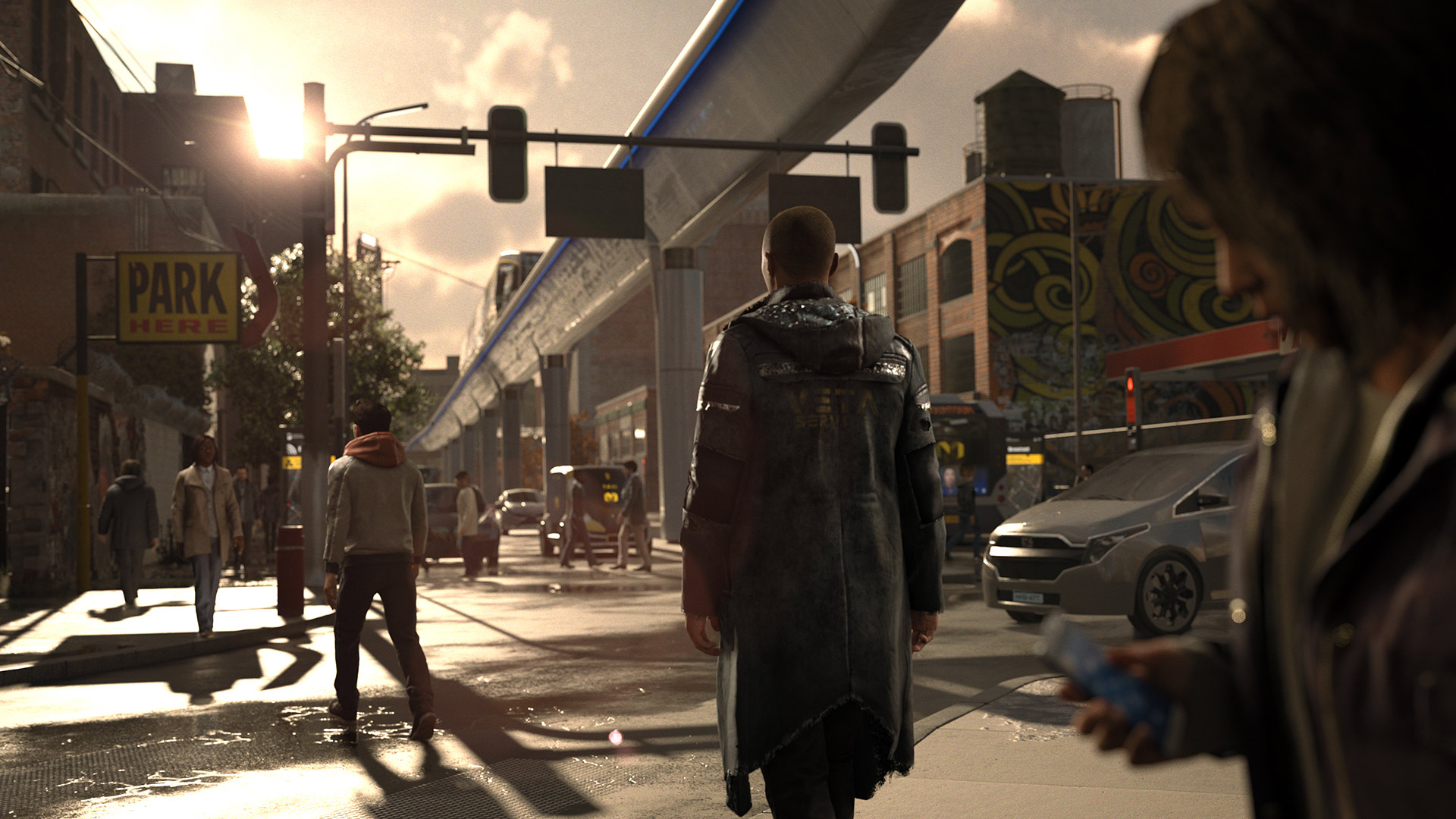
How Has Detroit: Become Human Influenced the Gaming Industry?
Detroit: Become Human’s success has had a significant influence on the gaming industry, pushing the boundaries of narrative-focused video games and opening new possibilities for interactive storytelling. The game’s exploration of complex moral dilemmas, interactive gameplay, and emotional depth have inspired game developers to delve deeper into the potential of the medium.
Furthermore, the game’s historical parallels, dealing with themes of discrimination and human rights, have raised important social and ethical discussions, further blurring the line between gaming and real-life issues. Detroit: Become Human serves as a testament to the power of video games as an art form, fueling the ongoing evolution of the gaming industry.

Conclusion
In conclusion, Detroit: Become Human has made a significant impact on the gaming industry with its captivating narrative and innovative gameplay mechanics. The game allows players to make meaningful choices that have consequences, creating a unique and immersive experience. The developers behind the game, led by talented directors and producers, have crafted a visually stunning and technologically impressive masterpiece. Detroit: Become Human has received critical acclaim for its storytelling and has garnered a dedicated fan base. The game’s success has also led to adaptations in other media, such as a manga spin-off. With its thought-provoking themes and engaging gameplay, Detroit: Become Human has undoubtedly left a lasting impression on both players and the gaming industry as a whole.









